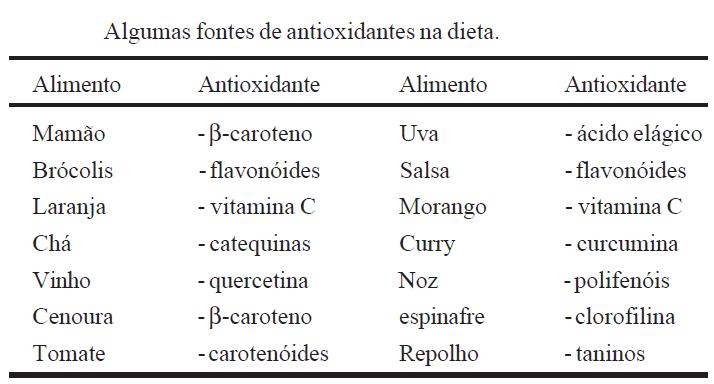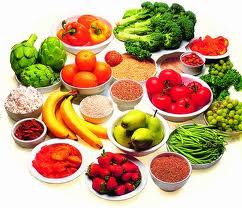Free radicals
All cells in our body constantly need oxygen to convert nutrients absorbed from food into energy. However, the burning of oxygen by cells releases free radical molecules that are unstable. These free radicals can cause degenerative diseases of aging and cell death (heart disease, atherosclerosis and lung problems).
Among the most likely external causes of the formation of free radicals in our body are:
- Environmental pollution and vehicle exhaust gases;
- X ray;
- Ultraviolet radiation from the sun;
- Smoking and alcohol;
- Toxic substances present in food and drinks (chemical additives, hormones);
- Stress;
- High consumption of saturated fats (fried foods, sausages).
Antioxidants
Antioxidants are a set of substances formed by vitamins, minerals, natural pigments and other plant compounds that block the damaging effect of free radicals.
The use of antioxidant compounds found in the diet or even synthetic ones is one of the defense mechanisms against free radicals that can be used in the food, cosmetics and beverage industries and also in medicine.
Foods contain oxidizing compounds, which may occur naturally or be introduced during processing for consumption. Some foods, especially fruits and vegetables, also contain antioxidant agents, such as vitamins C, E, A, chlorophyllin, flavonoids, carotenoids, curcumin and others.
Vitamins C, E and b-carotene are considered excellent antioxidants, capable of scavenging free radicals with great efficiency.
Therefore, invest in a diet with foods rich in antioxidants as it is beneficial for our health!
Source:
BIANCHI, MLP, ANTUNES, LMG Free radicals and the main antioxidants in the diet. Rev. Nutr., Campinas, 12(2): 123-130, May/Aug., 1999.
http://www.revista-fi.com/materias/83.pdf



